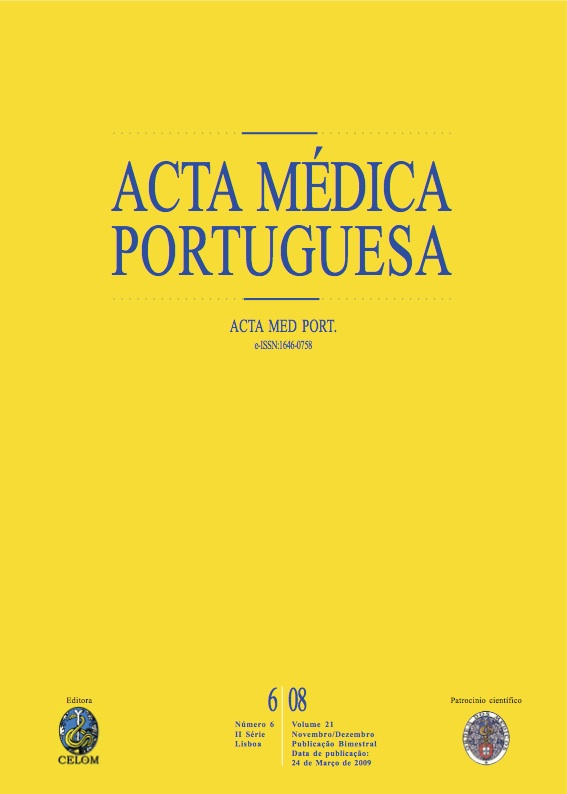Association of the functional serotonin transporter promoter polymorphism (5-HTTLPR) with externalizing and internalizing aggressivity and alcohol abuse.
DOI:
https://doi.org/10.20344/amp.825Abstract
Genetic factors of alcoholism influence the phenotypic heterogeneity of alcohol dependence, allowing the higher or lower expression of related aggressive behaviours. The pathogenesis of alcoholism and anti-social behaviour has been connected to serotonergic system dysfunction, given support to examine the association with 44-basepair insertion/deletion polymorphism of serotonin gene transporter (5-HTT). The study aims to assess the relationship between 5-HHTLPR polymorphism, aggressive behaviour and alcohol consumption pattern. There were recruited 97 alcohol dependent patients from the alcoholism unit (Etilo-Risco) of the Psychiatric Service of Santa Maria Hospital. Blood for DNA extraction and clinical and behavioural information was collected during the therapeutic program. Regarding 5-HTTLPR polymorphism prevalence in alcoholic population, 30.7% were homozygotic to l allele, 19.8% were homozygotic to s allele and 49.5% were heterozygotic l/s. Alcoholic patients carrying the l allele from 5-HTTLPR genotype showed significant lower scores of aggressivity during acute alcohol consumption, and alcoholic patients carrying the s allele showed significant higher scores of aggressivity (during acute alcohol consumption and abstinence), however, the results were not significant. The association between the functional nature of the s allele of 5-HTTLPR polymorphism with aggressive behaviour is in agreement with the general models of aggressivity that report low levels of central serotonergic activity related to impulsive and anti-social behaviours. The results demonstrate an association between 5-HTTLPR polymorphism and the auto and heteroaggressive behaviour in alcohol dependent population, particularly when aggressivity appears under acute alcohol consumption. During acute alcohol consumption stage, the presence of the l allele may act as a protective factor of aggressive behaviour risk, whereas the results tendency showed the s allele as susceptibility factor. Data suggests that the presence of s allele may confer a genetic vulnerability factor to the development of aggressive behaviour in alcohol dependent subjects, specially, in interaction with acute alcohol consumption stage.Downloads
Downloads
How to Cite
Issue
Section
License
All the articles published in the AMP are open access and comply with the requirements of funding agencies or academic institutions. The AMP is governed by the terms of the Creative Commons ‘Attribution – Non-Commercial Use - (CC-BY-NC)’ license, regarding the use by third parties.
It is the author’s responsibility to obtain approval for the reproduction of figures, tables, etc. from other publications.
Upon acceptance of an article for publication, the authors will be asked to complete the ICMJE “Copyright Liability and Copyright Sharing Statement “(http://www.actamedicaportuguesa.com/info/AMP-NormasPublicacao.pdf) and the “Declaration of Potential Conflicts of Interest” (http:// www.icmje.org/conflicts-of-interest). An e-mail will be sent to the corresponding author to acknowledge receipt of the manuscript.
After publication, the authors are authorised to make their articles available in repositories of their institutions of origin, as long as they always mention where they were published and according to the Creative Commons license.









